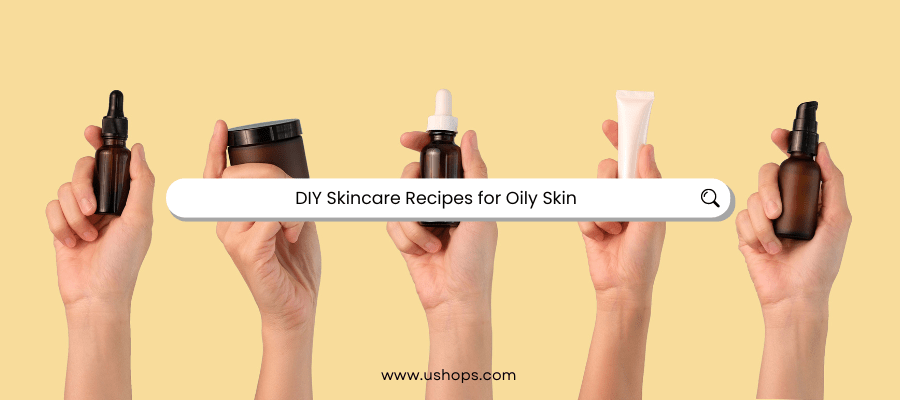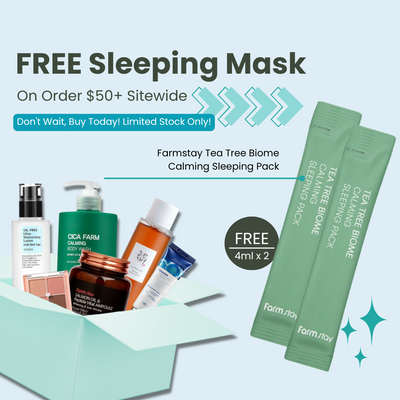Introduction
Managing oily skin can often feel like a never-ending battle. From constant shine to frequent breakouts, those with oily skin face unique challenges that require a specialized approach to skincare. Oily skin is characterized by an overproduction of sebum, the natural oil produced by our skin's sebaceous glands. While sebum plays a crucial role in keeping our skin hydrated and protected, excessive amounts can lead to a host of problems.
Common concerns for those with oily skin include persistent acne, enlarged pores, and an overall shiny complexion. Acne, both inflammatory and non-inflammatory, is often exacerbated by the excess oil that clogs pores, leading to pimples, blackheads, and whiteheads. Enlarged pores are another frequent issue, as they can appear more prominent when filled with oil and debris. The constant battle against shininess can make it difficult to keep your skin looking fresh and matte throughout the day.
In this blog, we'll delve into the essentials of skincare for oily skin, highlighting the key ingredients and products that can help you manage and improve your skin. Whether you're struggling with persistent acne or just looking to reduce that midday shine, this guide will provide you with the knowledge and tools to achieve clearer, healthier skin.
Understanding Oily Skin
Definition and Characteristics of Oily Skin
Oily skin is a skin type characterized by an overproduction of sebum, the skin’s natural oil. While sebum is essential for maintaining skin hydration and protecting against environmental damage, an excess can lead to various issues. People with oily skin often notice that their face appears shiny, particularly in the T-zone (forehead, nose, and chin). Pores may also appear larger and more noticeable, and the skin might feel greasy to the touch. Makeup can slip off more easily, and frequent touch-ups may be necessary throughout the day.
Causes of Oily Skin
Several factors contribute to the development and persistence of oily skin:
- Genetics: If oily skin runs in your family, there’s a good chance you might inherit this skin type. Genetics play a significant role in determining how much oil your sebaceous glands produce.
- Hormonal Changes: Hormones significantly impact oil production. During puberty, menstruation, pregnancy, or menopause, hormonal fluctuations can increase sebum production. Androgens, male hormones present in both men and women, can also stimulate sebaceous glands to produce more oil.
- Diet: While the relationship between diet and oily skin isn’t fully understood, some studies suggest that high-glycemic diets and dairy consumption can exacerbate oiliness and acne.
- Climate: Hot and humid weather can increase oil production. People often find their skin becomes oilier in the summer months.
Skincare Products: Using products that are too harsh or not suitable for your skin type can strip the skin of its natural oils, prompting it to produce even more oil to compensate
Key Ingredients for Managing Oily Skin
Overview of Essential Ingredients Known for Their Oil-Controlling and Clarifying Properties
To effectively manage oily skin, it's crucial to incorporate ingredients that not only control sebum production but also help to clarify and soothe the skin. Here are some of the most beneficial ingredients for oily skin:
- Tea Tree Oil: Renowned for its antibacterial and anti-inflammatory properties, tea tree oil is a powerful ally in the fight against acne and excessive oiliness. It helps to cleanse the skin, reduce redness, and prevent breakouts by keeping the pores clear and free from bacteria.
- Hyaluronic Acid: While it might seem counterintuitive to use a hydrating ingredient on oily skin, hyaluronic acid is essential. It provides lightweight hydration that doesn't clog pores, helping to maintain the skin’s moisture balance. Proper hydration prevents the skin from producing excess oil to compensate for dryness.
- Niacinamide: Also known as vitamin B3, niacinamide is a versatile ingredient that helps regulate sebum production, reduce inflammation, and improve the skin’s barrier function. It also helps to minimize the appearance of pores and even out skin tone.
Benefits of Incorporating Oil-Control Products into Your Routine
Reduction in Excess Oil and Shine
One of the most immediate and noticeable benefits of using oil-control products is the reduction in excess oil and shine. Products formulated with oil-absorbing ingredients such as clay and salicylic acid help to regulate sebum production, keeping your skin matte and less greasy throughout the day. This not only improves the overall appearance of your skin but also enhances the longevity of your makeup, reducing the need for frequent touch-ups.
Prevention of Acne and Breakouts
Excess oil can clog pores and create an environment where acne-causing bacteria thrive. By incorporating oil-control products into your routine, you help to keep your pores clear and reduce the likelihood of breakouts. Ingredients like tea tree oil and witch hazel possess antibacterial properties that combat acne-causing bacteria, while salicylic acid penetrates deeply to unclog pores and prevent future breakouts. This comprehensive approach helps to keep your skin clearer and healthier.
Minimization of Enlarged Pores
Oily skin often goes hand in hand with enlarged pores, which can become more noticeable when filled with oil and debris. Using products that target oil control helps to reduce the appearance of pores by keeping them clean and less congested. Ingredients such as niacinamide and witch hazel work to tighten and refine pores, giving your skin a smoother, more even texture.
Additional Tips for Managing Oily Skin
Lifestyle Changes That Support Oil Control
- Diet: Incorporate a balanced diet rich in fruits, vegetables, and whole grains. Avoid high-glycemic foods and dairy products that can exacerbate oil production and breakouts.
- Hydration: Drink plenty of water to keep your skin hydrated from the inside out. Dehydration can lead to an increase in oil production as the skin compensates for the lack of moisture.
- Avoiding Heavy Makeup: Opt for lightweight, non-comedogenic makeup products that won't clog pores. Heavy makeup can contribute to oil buildup and breakouts.
Importance of Regular Skin Cleansing and Avoiding Over-Washing
- Regular Cleansing: Cleanse your skin twice a day to remove excess oil, dirt, and impurities. This helps prevent clogged pores and breakouts.
- Avoid Over-Washing: Washing your face too often can strip the skin of its natural oils, leading to increased oil production. Stick to cleansing twice daily to maintain a balanced skin barrier.
Tips for Dealing with Seasonal Changes and Their Impact on Oily Skin
- Summer: In hot and humid weather, your skin tends to produce more oil. Use lightweight, oil-free moisturizers and incorporate a mattifying sunscreen to control shine.
- Winter: Cold, dry weather can strip the skin of moisture, leading to increased oil production. Use hydrating, non-comedogenic moisturizers to maintain a healthy moisture balance without clogging pores.
Conclusion
Recap of the Importance and Benefits of a Tailored Skincare Routine for Oily Skin Managing oily skin requires a dedicated and tailored skincare routine that addresses excess oil production, prevents breakouts, and maintains a healthy, balanced complexion. By incorporating the right products and practices, you can effectively control oiliness and achieve clearer, healthier skin.
Encouragement to Incorporate These Steps and Products into Daily Skincare Consistency is key when it comes to managing oily skin. By following the recommended steps and using the appropriate products, you can see significant improvements in your skin's appearance and health. Remember to be patient and give your skin time to adjust to new products and routines.
Final Thoughts on Maintaining a Consistent Routine and Being Patient with Results A tailored skincare routine for oily skin can transform your complexion, but it requires dedication and patience. Stick to your routine, make adjustments as needed, and give your skin the time it needs to show improvements. With consistent care, you can achieve a balanced, healthy, and radiant complexion.


